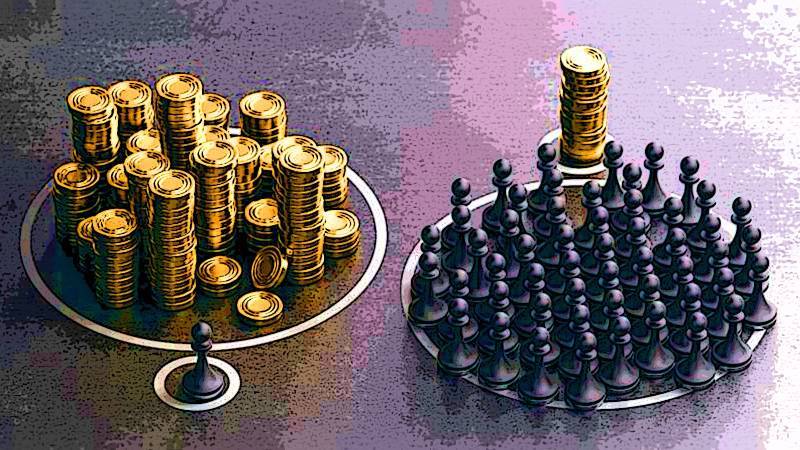
Per John Locke, all individuals are inherently equal and possess similar fundamental rights to life, liberty, and possessions (Locke, 1689). Muhammad Ali Jinnah, the founding father of Pakistan, proclaimed the country to be a democratic state; however, since its inception, Pakistan has drawn criticism from the international community over aggravated human rights issues and justice inequalities. Over time, we have seen how government institutions have become the playthings of the elite, the one percent who safeguard their interests rather than being administered by the people for their welfare and general well-being. Ironically, a system has been established that draws a line between two classes of Pakistanis, with equivalent rights and obligations promised to all by the Constitution but unjustly granted only to the elite.
In Pakistan, the elite culture is prominent, dominating all spheres of power — political, economic, and social. On the contrary, the common citizen faces 'special' and 'exclusive' treatment every day, from the police stations to the courts and from the hospitals to educational institutions. The suffering worsens when specific identities are considered, whether ethnic, religious, or regional. Thus, elitism today poses one of the greatest challenges facing the country. The lack of people-centric democratic institutions further exacerbates the divide between the common citizen and the elite.
Incidents demonstrating the extent of injustice across the country unfold daily. One of the most recent instances of the firmly established status quo of elite culture is the Karsaz road accident. Businessman Danish Iqbal's wife, Natasha Danish, killed two people and injured four when she drove while intoxicated. Later, tests indicated that she allegedly had crystal meth in her bloodstream. Natasha was charged with attempted murder and driving under the influence. Ultimately, the elite often remains above the law. Natasha's family reportedly paid Rs50 million in blood money to the victims' families and offered a job to the sister of the deceased. The subordination of government institutions to the rich in Pakistan means that rules and regulations are followed only by ordinary people, while elites can evade repercussions through their money or power. The elite can pay millions for taking somebody’s life unlawfully, while ordinary citizens suffer brutal suppression. Prisons are filled with those unable to afford bail or those wrongfully imprisoned on behalf of others.
A democracy cannot flourish in a situation where justice is accessible to a select few and power remains unbounded
In a country of over 240 million people, there have been a wide range of socio-economic and political issues including injustice, corruption, inequality, inflation, poverty, overpopulation, and climate change. The common citizen is the primary victim of these problems. Economic disparities and the uneven distribution of resources are particularly evident in Pakistan. A significant gap exists between the income of an ordinary citizen and that of the elite. According to the World Inequality Database Report, the top 10% earn 43% of national income, while the bottom 50% earn only 13%. The top 10% often comprises individuals with roots in politics, the military, judiciary, and bureaucracy, who collectively accumulate most of any country’s wealth. They enjoy exclusive financial benefits, live in luxurious housing societies that are off-limits to ordinary people, and receive free electricity, healthcare, vehicles, fuel, and even overseas trips. In stark contrast, the bottom 50% lack access to basic amenities and essentials. Every fiscal year, the federal government raises taxes, adding to the strain on ordinary citizens who are struggling to make ends meet.
It is obvious that high authorities and positions in Pakistan are taken over by the elite class, which has seized control over all government and corporate organisations. These institutions operate in such a manner that preserves the interests of the wealthy. As American civil rights leader John Lewis (1940-2020) correctly stated,” A democracy cannot flourish in a situation where justice is accessible to a select few and power remains unbounded”. The country has thus become a hub of entrenched corrupt institutions characterised by nepotism, exploitation, and bribery. Such evils have rendered the system subservient to the elite's insatiable lust for power, exacerbating the plight of ordinary people. The majority are trapped in a cycle of hunger and despair, leading them to forget their rights, which further extends mistrust and raises pessimism about whether the divide between rulers and the ruled can ever be bridged. Pakistan's political system has become opaque, preventing ordinary citizens from rising to enjoy rights and liberties equal to those of the elite, because providing equal fundamental rights to ordinary citizens would empower them to establish a people-centric government, breaking down the barriers that divide them from the elite. A healthy, educated, and resourceful populace is always perceived as a threat to elite supremacy.
Historically, our culture has fostered oppression, inequality, and apprehension, leading to stagnation and disintegration of society. Commoners have seldom dared to challenge the status quo due to a hesitance born of insecurity and uncertainty over decades. They have become victims of elite capture and VIP culture in educational institutions, hospitals, courts, law enforcement, and other public and private spaces. Consequently, Pakistan has consistently come under fire from international organisations for violating human rights.
Lastly, for the evolution of a transparent and inclusive society in Pakistan, it is essential to foster democratic ideals such as justice, equality, and the rule of law. As Jinnah famously said,” The primary responsibility of a government is to uphold law and order”, but such a principle seems lost in the case of Pakistan, where the legal system and authorities have been manipulated by the elites to escape accountability and further widening the divide between an ordinary citizen and an elite. However, the gap can only be bridged through the equal provision of justice and resources to the common populace, which can only be ensured by transparent and accountable institutions.

